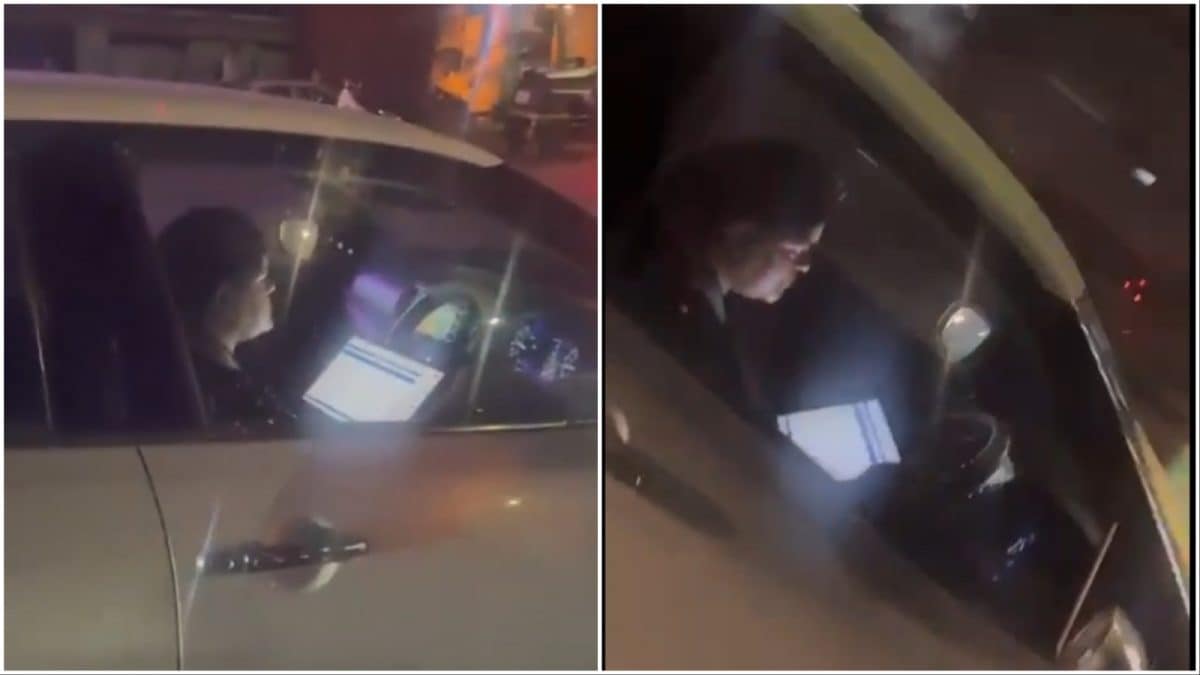 |
|
The recent incident of a Bengaluru woman being fined for using a laptop while driving her car has ignited a heated online discussion about the pressures of modern work culture and the challenges of navigating congested city traffic. The incident, captured on video and widely circulated on social media, shows the woman operating her laptop in the driver's seat, apparently attempting to multitask during her commute. The Bengaluru Traffic Police, specifically the DCP Traffic North, shared the video and a subsequent image of the woman receiving a fine, with the caption, "Work from home, not from car while driving." This simple statement encapsulates the core issue at hand: the dangerous and illegal act of working while operating a motor vehicle.
The viral nature of the videos and the police's public response have resulted in a complex array of reactions. Many social media users expressed their outrage at the woman's blatant disregard for road safety. Calls for the cancellation of her driving license were frequent, demonstrating the public's intolerance for such behavior. The potential consequences of distracted driving, including accidents and injuries, are severe, and the public condemnation reflects this understanding. However, a significant portion of the online discourse shifted the blame beyond the individual driver, highlighting the systemic pressures that may have contributed to her actions. The intense workload and demanding schedules imposed on many professionals, particularly in urban centers like Bengaluru, were cited as potential factors that forced the woman into this perilous situation. Comments questioned the responsibility of employers for creating unrealistic expectations and excessive work hours, essentially forcing employees into compromising their safety to meet deadlines.
The debate underscores the growing tension between professional expectations and personal well-being. Many social media users shared their own experiences with grueling work schedules and the struggle to maintain a healthy work-life balance. Tales of long commutes, overflowing public transport, and demanding work hours resonated with many, lending a degree of sympathy, albeit not justification, for the woman's actions. One user described a 4-hour commute spanning just 17 kilometers, highlighting the pervasive traffic congestion that plagues Bengaluru. The pressure to meet work demands, coupled with limited alternatives for commuting, paints a picture of a system that potentially forces individuals into compromising their safety. The debate is not solely about the legal ramifications of distracted driving but a larger conversation on societal pressures, workplace culture, and the responsibility of employers in creating a sustainable work environment. This incident serves as a stark reminder of the need for employers to prioritize employee well-being, to implement reasonable work hours, and to recognize the significant impact of unrealistic expectations on their employees' safety and overall mental health.
The incident also sparked discussion on technological solutions. Several users questioned whether using a laptop while driving was significantly different from using a phone’s carplay or android auto features to answer work calls. While it's undeniable that using a laptop while driving is far more distracting and dangerous than using these features, the debate raises the question of the increasing integration of technology into both work and driving, and the need to balance productivity with safety. The discussion raised questions about employer responsibility and corporate culture, questioning whether unrealistic work demands contribute to such risky behaviors. This highlights the complex relationship between individual responsibility, societal pressures, and the impact of technological advancements on our daily lives. The incident isn’t just about a single driver's mistake, it's a reflection of a wider societal problem that requires a multi-faceted solution, involving stricter enforcement of traffic laws, improved public transportation, and a significant shift in corporate culture towards prioritizing employee well-being over unrealistic productivity targets.
Ultimately, the Bengaluru woman's case serves as a cautionary tale about the dangers of distracted driving and the pervasive pressures of modern work life. While her actions were undeniably unsafe and illegal, the ensuing public discourse has initiated a much-needed conversation about work-life balance, employer responsibilities, and the impact of technological integration on both work and driving. The conversation calls for a comprehensive approach that addresses both individual accountability and systemic issues contributing to this precarious situation. The ongoing discussion emphasizes the urgent need for a shift in attitudes and practices to prioritize safety and well-being while navigating the challenges of modern urban living and demanding work environments.
Source: Bengaluru Woman Uses Laptop While Driving, Traffic Police Say 'Work From Home, Not From Car'
